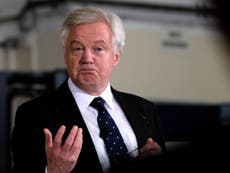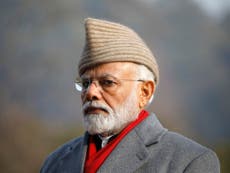The army’s marketing drive is a cynical, calculated ploy to exploit Britain’s most vulnerable young people
The marketing campaign – targeted at the country's most deprived areas – conveniently ignores the grim reality of military life

This week the Defence Committee blasted “failed” veterans mental health provision. As a veteran and PTSD sufferer – and former defence journalist well acquainted with the limits of MPs’ scrutiny committees – this is refreshing. Yet their report does not go deep enough. It looks at what happens to us after service, but less so at what happens at the start of the military production line.
Once again truly critical commentary has been left to those outside government. A new report entitled Selling the Military, launched yesterday, says what neither committee nor government will say. It slams military recruitment advertising for targeting groups, particularly disadvantaged young people, who are likeliest to suffer precisely the kind of adverse outcomes detailed in the committee report.
Written by military watchdog ForcesWatch, health charity Medact and with contributions from academics and veterans, the report calls for greater scrutiny and regulation of military recruitment marketing on health and ethical grounds.
The potential health and wellbeing impacts of a military career, heightened for those who enlist youngest and from disadvantaged backgrounds, are also highlighted in a British Medical Journal piece published this week, and in a 2016 report by Medact. These risks include long-term mental issues such as a 64 per cent increased risk of suicide among men under 20 in the Army when compared to the general population, and among young veterans when compared to the general population.
Other potential impacts range from poorer educational outcomes to having an inferior legal system in place to protect them.
The latter is a crucial point – young people should be made aware that there are high levels of bullying and sexual harassment in the military, especially for female and BAME personnel. Human rights group Liberty recently detailed disturbing case studies of this abuse and also how the armed forces are ill-equipped to deal with it. They even launched their own Human Rights Helpline because the military’s justice system is way below the civilian standard. This is a striking contrast to the recruitment adverts that promise not only equality that but the armed forces offer a far more equal, respectful and welcoming environment than civilian employers.
Working age veterans are also twice as likely to be unemployed as working age non-veterans, and many veterans say they struggle in civilian life due to a lack of transferable skills. The incredible sense of belonging sold by the military is enticing to young people in particular – but it does not speak to the high levels of loneliness and isolation, faced particularly by veterans but also personnel who cite causes like a culture of self-reliance and pride.
Yet the military’s expensive and complex campaigns whitewash over these things and sell falsehoods to vulnerable young people. The Selling the Military report details how marketing briefings and maps targeting cities against multiple deprivation indicators, prove that the army targets young people from the most deprived areas in the UK, and that they view these young people as “impressionable”.
Watching the army’s “This is Belonging”, “Made in the Royal Navy” and the RAF’s “No Ordinary Job” adverts, one could be fooled into thinking an exciting, fulfilling career awaits young people in the military. But in fact military surveys show levels of satisfaction among personnel are shockingly low with only four in ten of non-officers satisfied with service life in general. Levels of morale are reported as even lower; and roughly half of recruits don’t feel they had an accurate picture of services life before joining.
Plaid Cymru MP Liz Saville Roberts has commented on the Selling the Military Report, saying:
“It is unacceptable that the armed forces target vulnerable people as a recruitment strategy. When those vulnerable people are also under the age of 18, such targeted marketing must be called out as a cynical, calculated ploy to manipulate young people’s behaviour.
“Advertising alcohol and other legal drugs is regulated by law with the intention of safeguarding under 18 year olds. Surely the age restrictions and marketing methods of military recruitment must be restrained by law too.”
The report concludes with recommendations for what policymakers could do to provide oversight and regulation on how the uniquely risky careers of the armed forces are promoted to often vulnerable young people. Unfortunately, while the Defence Committee have previously recommended that there is a review of the young age of recruitment that the UK insists on maintaining – a measure that would safeguard the well-being of the youngest recruits – in today’s “recruitment crisis” climate, it seems unlikely that they will put the interests of the young before defence interests.
As understanding grows of the pressured marketing tactics used by the armed forces and the health impacts of young recruitment – as well as the wider issue of how adolescence is an extended “window of vulnerability” to sophisticated marketing that requires regulation more generally – we hope that defence interests will take second place.
Joe Glenton is an Afghanistan veteran, journalist and the author of ‘Soldier Box’





Join our commenting forum
Join thought-provoking conversations, follow other Independent readers and see their replies